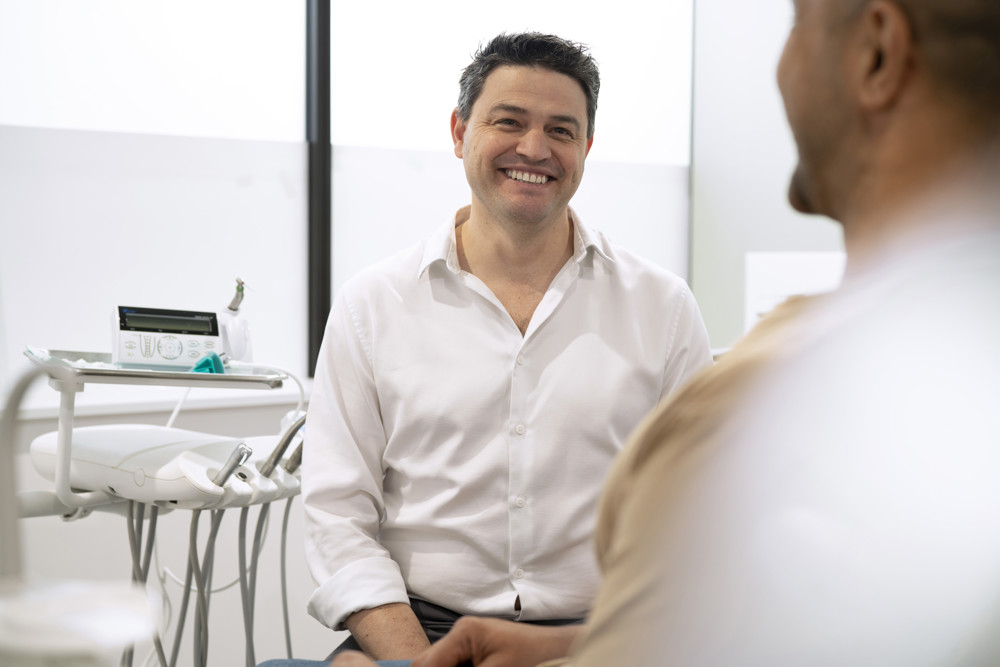Related treatments
Your dentist will examine your mouth carefully to diagnose the cause of your bad breath. You may need one of these common treatments.
Get prepared
When you book at one of our dental practices for bad breath you want to get to the bottom of it quickly. And clear it up as soon as possible. We understand. It’s useful to think ahead about what your dentist will need to know to diagnose and treat your problem.
Generally your dentist will ask you about your medical history and then thoroughly examine your mouth, teeth, gums, jaw, tongue, throat, sinuses, ears, nose and neck. You may also need an x-ray, depending on what your dentist suspects might be the cause of your bad breath.
Your dentist will ask you some questions about problems you’re experiencing, such as:
- When did your bad breath start?
- How noticeable is the odour?
- Have you made any changes in your dental routine?
- Has your diet changed?
- Are you experiencing any pain?
Think about your answers to these questions before your appointment. Being prepared can speed up the diagnosis.


